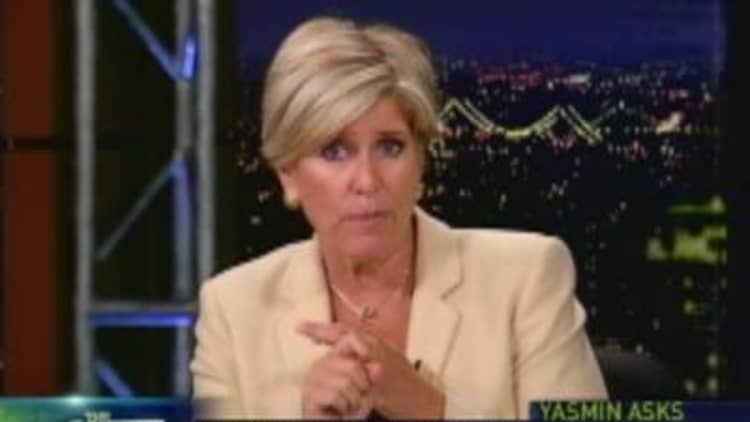Robin Williams was a world-class comic who made millions and tried to take good financial care of his children, yet his estate planning talents may have not matched his comedic genius.
The Oscar-winning actor was found dead on August 11 in what police are calling an apparent suicide. The 63-year-old had battled substance abuse problems for decades and had recently checked into a rehab facility.
Read MoreActor Robin Williams found dead in apparent suicide
It is quite possible, experts say, that Williams did not leave a will—though that may not be a bad thing.
"It's very likely he used a revocable trust. A lot of our California clients" take that approach, said Daniel Rubin, a partner at Moses & Singer specializing in trusts and estates.
Rubin explained that because the probate process tends to be a lengthy one in California, wealthy people there—and elsewhere—often opt to create a revocable living trust instead of a will. They make themselves the trustee, and in the trust documents indicate how they want their assets distributed. Then when they die, the assets are allocated without any public review.
Read MoreHow to avoid estate, will blunders

Williams did, however, leave money in a trust for his three children, according to TMZ, unlike Philip Seymour Hoffman or James Gandolfini.
Williams' publicist stated several days after the actor's death that that trust is no longer part of Willams' estate plan.
But experts say the kind of trust Williams had in effect at one point could have been structured much more effectively.
Read MoreHere's why Philip Seymour Hoffman's will is 'a mess'
The trust assets were reported to be structured so they would be distributed to Williams' children in three increments: at age 21, 25, and 30. But those may not be the optimal times for the kids to receive large sums of money, experts say.
Trust provisions like these are "fairly common, but far from ideal—especially because I would have to assume that his estate would be quite large," said David Mendels, director of planning at Creative Financial Concepts, a financial planning firm in New York. "Thus one third could easily be millions of dollars, which is quite a lot of responsibility to drop on a 21 year old."
Read MoreGandolfini's will a case study on what not to do
Many wealthy people worry that leaving too much money to children at a relatively young age will destroy their motivation, or worse.
There are other concerns with fixed distribution times, Mendels said. What if a child is getting divorced at 30, and suddenly comes into substantial assets that then have to be divided? Or what if a child is at risk for a lawsuit, and losing would mean handing over the assets?
Rubin said the more modern way of structuring a trust for children is to give them responsibility for appointing the trustee at a certain age. That way they can, if they choose, appoint someone who will let them draw down assets—or they can choose to leave the assets in the trust, where they are not vulnerable to a lawsuit or a divorce settlement.
"He definitely thought about his estate planning and did something smart, but not as smart as it could have been," Rubin said.
Estimates of the value of Williams' estate vary widely. He said in a 2013 interview that he was selling his Napa estate because he couldn't afford it anymore, and he was returning to television work for the money.
Still, the website celebritynetworth.com pegs his net worth at $50 million, and Williams' Napa ranch is currently on the market for $29.9 million.
Odds are, with assets like that, Williams' children can expect a large amount of money to flow their way. It just may not arrive when they want it.
—By Kelley Holland, Special to CNBC


